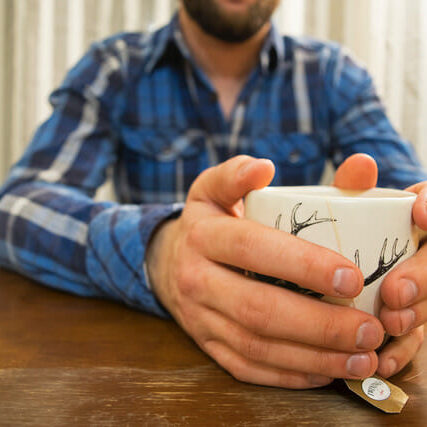
At the end of every January, the Bell Let’s Talk campaign, asks Canadians to talk about mental health. Though some have a harder time starting those conversations than others.
“While rates of mental illness are comparable between men and women, men are less likely to recognize, talk about and seek treatment for their illness.”
This is according to a letter written by Louise Bradley, President and CEO of the Mental Health Commission of Canada.
Though this letter wasn’t published widely, the idea it’s harder for men to reach out doesn’t surprise Maxwell Tal.
Tal, a second-year student at both the University of King’s College and Dalhousie University, says many men in his life often stigmatize emotional conversations.
“I don’t feel afraid to show people my feelings but I know many people, including my brother, who are. He almost brags about how little he cries,” he says.
Tal believes it’s getting easier for him and other men to talk about their emotions but it’s still difficult to find ways to start the conversations.
Common voices
On university campuses, it’s common to find vocal women talking about mental health. Men who are mental health advocates are few and far between.
“They tend to be perceived as manly,” says Marihan Farid, fourth-year medical science student. “And masculine means that you don’t express your emotions. Young boys are encouraged not to cry because that makes you less of a man somehow.”
Fragile masculinity could be to blame for the lack of men talking about mental illness. The “rub some dirt in it,” mentality is still strong; although more men are beginning to speak out about things usually deemed more “emotional” or “feminine.”
The #MeToo movement –– although primarily featuring women’s stories ––allows men like Terry Crews to come forward about men being sexually assaulted, which can also be heavily stigmatized. It’s times when influential men speak out that allow ordinary people to talk about their own experiences.
“For men there’s a larger stigma still standing that should be disintegrated about fragile masculinity,” says Patrick Lewis, fourth-year English major. “but really there shouldn’t be anything necessarily bad about showing emotions, despite media’s overwhelming condescension.”
Self-care: a term often used but rarely defined
Conversations about women’s self-care are at the forefront of social media content lately. The concept graces the stories of many influencers on Instagram. Face masks, bath bombs and beauty routines are boasted as self-care rituals, specifically for women. But what about men? They seem left out of the conversation. While some companies try to brand beauty products as “for men,” self-care isn’t just about beauty routines and physical appearance.
The Oxford English Dictionary defines self-care as “the practice of taking an active role in protecting one’s own well-being and happiness, in particular during periods of stress.”
Even if a man isn’t comfortable with some of the more “feminine” aspects of what’s deemed self-care, there are still options. And let’s be honest, everyone can enjoy a good face mask or bath if they want to.
“My personal self-care comes in poetry,” says Lewis. “It helps me get thoughts out of my head and onto paper; so that I can forget about them and move on.”
If poetry isn’t your cup of tea, the Canadian Mental Health Association has these Mental Fitness Tips: exercise, set goals, treat yourself and enjoy hobbies.
Everyone has mental health, so no matter your gender it’s time we all start taking care of ourselves.






